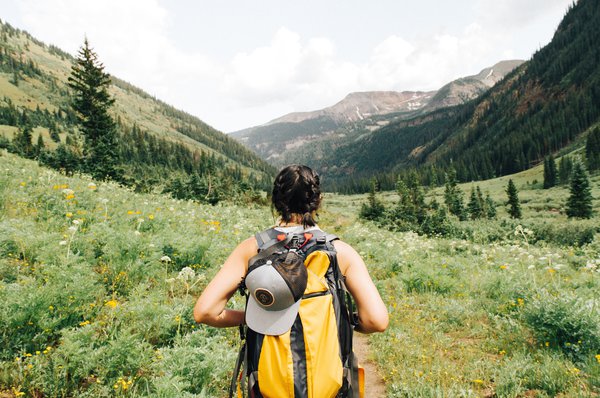Many people have answered the call of the outdoors during the COVID-19 pandemic to help maintain their physical and mental health. And it looks like this trend will continue in 2021 as thoughts turn to summer vacation.
Study after study has shown that spending time in nature reduces stress levels and promotes healing. It is also a great way to stay active and get the recommended amounts of exercise.
- MORE HEALTH
- Managing kids' cholesterol and blood pressure protects future brain health, new research shows
- Rutgers researchers are developing a COVID-19 breathalyzer test
- Untreated thyroid conditions can adversely impact pregnancy
One study found that people who spent two hours a week in green spaces — including local parks and other natural environments — were more likely to report good physical and mental health. The benefits were apparent regardless of whether the two hours came from one visit or were split among several shorter visits.
In order to reap these numerous benefits — which also include lower blood pressure, reduced anxiety, improved mood and enhanced immune system function — people need to feel safe in the environment, according to Richard Louv, a San Diego journalist who wrote the book "Last Child In The Woods."
Are crowded parks COVID-19 hotspots?
At the beginning of the pandemic, health officials expressed concerns that even outdoor recreation sites could be hotspots for the spread of the coronavirus. But the need to provide healthy outlets during the stay-at-home orders last spring led public officials to keep most parks open.
And people flocked to them.
In Pennsylvania, state parks and forests experienced a 26.6% increase in attendance last year. Foot and bicycle traffic on state park trails was 200% greater than two years prior and reservations for cabins, campsites and pavilions were up 35%, according to the Post-Gazette.
Philadelphia parks saw a 50% spike in visitors. And so far, no COVID-19 outbreaks have been linked to the city's parks. A recent Drexel University study that examined park usage in Philadelphia and New York between last May and July didn't find any concerning surges in COVID-19 cases.
The study, published in the Journal of Extreme Events, focused on the cities' small and mid-size parks. It compared park usage numbers to COVID-19 transmission rates in surrounding areas. The increased usage observed in the 15 Philly and seven New York parks included in the study did not result in higher COVID-19 transmission.
"Despite early speculation that parks could become gathering points for large groups of people and contribute to transmission of COVID-19, our research did not find a strong correlation between COVID-19 cases in neighborhoods near parks and the number of people using them," explained Franco Montalto, the Drexel engineering professor who led the research team.
The researchers also observed that only a small percentage of park users — 22.7% in Philadelphia and 1.2%, in New York — did not wear masks. Less than 1% in both cities engaged in any high-risk behaviors, including spitting and coughing without covering their mouths. Contact sports weren't a major issue, either.
"While the municipalities that did close parks during the pandemic likely did so out of an abundance of caution, our work shows no evidence to support closing the parks during the pandemic," Montalto said.
Outdoor destinations a growing travel trend
Parks across the country have seen similar surges in visitors, including national parks like Yellowstone National Park. The renewed interest in outdoor spaces also has led more people to book outdoor-oriented vacations as more of the U.S. and many other countries start to loosen travel restrictions.
Travel experts say most people likely will choose camping and road trips at first, but they expect interest in domestic and international air travel to increase as well.
According to research from Destination Analysts, almost 33% of those traveling soon will visit outdoor-oriented destinations. Interest in eco-friendly lodges and wellness resorts are also growing.
Homes & Villas by Marriott International has seen a recent spike in searches for outdoor-themed destinations in places like Gatlinburg, Tennessee; Alabama's Gulf Shores; Palm Springs, California; Puerto Rico; Playa del Carmen, Mexico; and Tamarindo, Costa Rica.
To reduce their risk of COVID-19 exposure, most travelers are looking to stay in private camps or homes and take self-guided hiking and river rafting excursions rather than book group trips, travel experts say.
"Getting outside is essential for human health and happiness, and in this current moment in time of stress and anxiety, the outdoors are more important than ever," Alyssa Ravasio, CEO of Hipcamp, a booking resource for outdoor vacations, told The New York Times last summer, when these trends were first starting to be observed.


